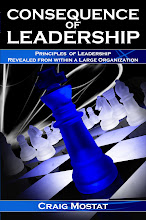In the military, one is trained to be disciplined and obedient at all times. Do exactly what you are told to do–word for word. Never miss a thing they tell you to do, and never take shortcuts, or you will suffer the consequences. Failproducts.com
The hit 1960's spy parody television show "Get Smart" starring Don Adams as Maxwell Smart (recently made into a movie - 2008) featured a humanoid robot named Hymie, which followed instructions exactly as worded. For example, when Smart tells Hymie to "get a hold of yourself," he grasps each arm with the other.
In retail, we use the term "facing" which means to front face or pull products forward to the front of a shelf. A colleague once directed a new employee to face an aisle in a certain department. Upon checking a while later, he found the employee standing and facing the shelves down the aisle not understanding what was asked of him.
A disappointing fact to some, people are not machines that perform continuously doing exactly what they are designed for and only require fuel and minimal maintenance. However, a leader's military style interaction and expectations can render their people pretty close to a basic machine.
The most effective leaders influence and inspire through open-ended questions vs. dictation. They have a vision and clear idea of where they want to go, what it looks like when they get there and craftily steer people and consequently the organization toward the goal.
This does not refer to becoming more polite i.e.: instead of telling someone to do something, ask him or her to do it. Rather it is the ability, through questioning, to persuade others to come up with the answer, idea, direction etc. that you have in mind. This is essentially coaching which develops self-sufficient empowered individuals.
In war, people die if orders are not followed explicitly. In business, organizations fail if people are not empowered to use their judgement.



